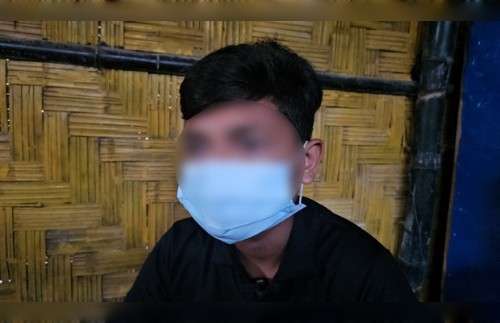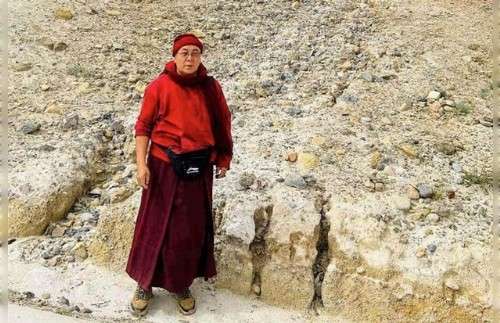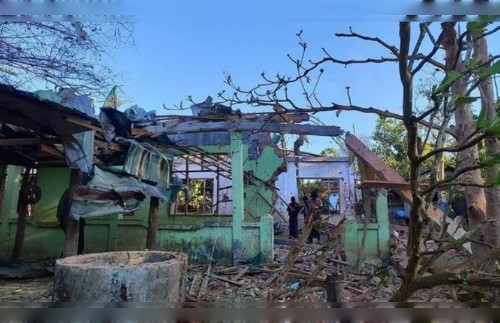The well-loved religious teacher died under mysterious circumstances in a Chinese prison in 2015.

Six years after the death in a Chinese prison of a popular Tibetan religious teacher, fair treatment under the law is still being denied to Tibetans living under Beijing’s rule, experts say.
Tulku Tenzin Delek, 65, died under mysterious circumstances on July 12, 2015 while serving a life sentence following what rights groups and supporters called a wrongful conviction on a charge of bombing a public square in Sichuan’s provincial capital Chengdu in April 2002.
Widely respected among Tibetans for his efforts to protect Tibetan culture and the environment, he was initially sentenced to death, but the sentence was later commuted to life imprisonment.
An assistant, Lobsang Dondrub, was executed almost immediately, prompting an outcry from rights activists who questioned the fairness of the trial.
It is clear that Tulku Tenzin Delek’s death in Chinese custody was due to ill treatment by the authorities, said Dharamsala, India-based researcher Tenzin Dawa of the Tibetan Centre for Human Rights and Democracy, speaking to RFA in an interview.
“And to hide the violations, they refused to hand over the Rinpoche’s body to his family,” Tenzin Dawa said, referring to Tulku Tenzin Delek by an honorific reserved for the most highly regarded spiritual teachers.
“We consider that the detainment, sentencing, and death of Tulku Tenzin Delek Rinpoche was completely illegal,” she said.
Tulku Tenzin Delek’s niece Nyima Lhamo, now living in the U.S. after escaping from Tibet in August 2016, said she believes that Tulku Tenzin Delek died in Chinese custody after authorities “poisoned him after treating him badly in prison.”
Family members, friends, and students are still suffering and cannot openly mourn his loss, she said, adding that the stories of other Tibetans still suffering under Chinese rule should be made better known to the world outside Tibet.
One, a Tibetan writer named Lobsang Lhundup who goes by the pen name Dhi Lhaden, was arrested in Chengdu on unspecified charges two years ago and has not yet been brought to trial, with family members still kept in the dark about his fate, sources told RFA in earlier reports.
Two others, a Tibetan woman named Lhamo and a man named Tharpa, were detained in June 2020 after sending money to family members in India, with Lhamo dying two months later of injuries received in custody, sources said.
Writers, singers, and artists promoting Tibetan national identity and the use of the Tibetan language have frequently been detained by Chinese authorities, with many handed long jail terms, following protests that swept Tibet and Tibetan areas of China in 2008.
No signs of improving
Tulku Tenzin Delek Rinpoche should have never been in detention at all, let alone ill-treated and denied adequate medical care, said Sophie Richardson, China Director for the New York-based rights group Human Rights Watch.
“The fact that just a few years later we are writing about additional monks who have been given incredibly harsh sentences, 19 to 20 years for perfectly legal behavior, shows there is no let-up in the Chinese authorities’ denial of the right to a fair trial.”
“I think that anyone who wants to have confidence in the Chinese legal system has to consider cases like Tulku Tenzin Delek Rinpoche’s, as they are not anomalies. The Chinese government has shown no signs of improving,” Richardson said.
Tulku Tenzin Delek’s case has now been raised by Tibetan NGOs and rights groups in many different forums and has helped call further attention to the lack of fair trials and other human rights for Tibetans living in Tibet, said Rinzin Choedon, director of the India chapter of Students For a Free Tibet.
“Many of their stories are still unknown to us,” Rinzin Choedon said.
Formerly an independent nation, Tibet was invaded and incorporated into China by force 70 years ago.
Chinese authorities maintain a tight grip on the region, restricting Tibetans’ political activities and peaceful expression of cultural and religious identity, and subjecting Tibetans to persecution, torture, imprisonment, and extrajudicial killings.
Reported by Lobsang Gelek for RFA’s Tibetan Service. Translated by Tenzin Phakdon. Story contribution by Tenzin Dickyi. Written in English by Richard Finney.
Copyright © 1998-2020, RFA. Used with the permission of Radio Free Asia, 2025 M St. NW, Suite 300, Washington DC 20036. https://www.rfa.org


















